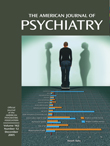Dr. Paul Lucas is a tormented soul. The protagonist of Roderick Anscombe’s third novel, The Interview Room, suffers from posttraumatic nightmares replaying the fatal car accident that claimed the life of his toddler son only a year ago. His lovely wife, Abby—a social worker who declares she is not ready to surrender her grief—has become remote and secretive. His chairman calls to give him a heads-up: Craig Cavanaugh, the grandson of a superwealthy financier (he’s on the hospital’s board of trustees and has donated its Cavanaugh Pavilion) will be admitted to Paul’s unit at the Sanders Institute, the forensic facility run by the hospital.
Craig’s crime is simple. He’s a Harvard undergraduate who’s been stalking Natalie Davis, a teaching assistant for Craig’s creative writing class, and he’s violated a restraining order. Before he heads to Sanders Institute to interview Craig, Dr. Lucas meets Natalie—who looks a bit like Abby and is just a little flirtatious—to hear her side of the story. He then proceeds to Sanders, and his sessions with Craig begin in Interview Room One. The sessions are filled with tension, and it’s never quiet clear who’s interviewing whom; their interactions are reminiscent of those between Clarice and Dr. Lector, and there are moments when it seems Craig has the upper hand and Dr. Lucas just might crumble. Finally, Craig’s commitment hearing comes, and the judge agrees to release him—after all, he’s only suffering from an adjustment disorder with mixed emotional features—on condition that he continue in outpatient therapy with Dr. Lucas.
From here, all hell breaks loose. Craig, now free in society, is able to violate every boundary. He deftly weaves his way in and out of Dr. Lucas’ life, and the therapy sessions are a series of mind games. Although Dr. Lucas is proclaimed as the world’s expert on lying, it isn’t clear how he will conquer Craig or vindicate himself in a series of concocted plots. The story becomes one of murder, infidelity, infatuation, and intrigue.
A reader opens a novel with a set of expectations; mine were shaped by Anscombe’s first novel,
The Secret Life of Laszlo, Count Dracula (1). Anscombe’s rendition of the Dracula tale is written as the diary of a Paris-trained physician, a secret serial killer, who returns to the Hungarian countryside to assume his legacy as Count Dracula. While the title might lure the vampire crowd, there is nothing supernatural here, and the story is told with calculating, lyrical prose and meticulous detail to tone, character, and setting.
The Interview Room is not as elegant a work; the writing is more clipped and less detailed, and everything about this book moves at a faster pace designed to entertain. Anscombe is a gifted, versatile writer whose literary voice glides in a variety of genres.
As a quick read with a self-propelled plot, The Interview Room is the perfect “vacation read.” That’s not to say, however, that the novel is fluff. Its author, Roderick Anscombe, is a forensic psychiatrist at Bridgewater State Hospital, and the voice of Dr. Lucas lends insights unique to thriller fiction. His portrayal of the stalker’s tenacity is chilling. Worth the sleep you’ll lose staying up to finish it.

